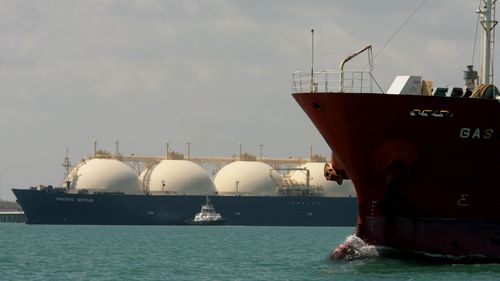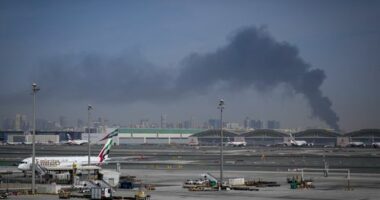Share this @internewscast.com
Experts are urging for independent oversight and transparency following revelations that a significant gas facility in Darwin has been releasing hundreds of thousands of tonnes of methane into the atmosphere over nearly two decades.
The DLNG facility, soon to be operated by the gas company Santos as part of its Barossa offshore gas extraction project, reportedly deemed the leak as stable. Consequently, neither Santos nor the NT EPA plan to address it, according to the ABC.

Salehi also warned it posed a more immediate danger to workers and nearby communities.
“Methane is highly flammable, and in poorly ventilated areas, even small concentrations can ignite,” she said.
“When mixed with oxygen, it can create explosive atmospheres capable of causing catastrophic fires and extensive infrastructure damage.
“Although the Darwin leak is in an open area, minimizing the immediate risk of a catastrophe, there remains a danger of ignition with any large, unnoticed release of gas, especially near industrial sites, pipelines, or residential zones.”
She said the report that the information had been kept from the public for decades had been labelled “a serious failure”.
“With the upcoming renewal of the plant’s environmental permit, now is a crucial moment for enhanced accountability, solid measures to control fugitive emissions, and assurances that this kind of oversight will not happen again,” she stated.
“Proper action is needed to protect both the climate and the safety of the Darwin community.”
The Australia Institute’s principal advisor, Mark Ogge, said the allegations amounted to a “national scandal”.
“It confirms that Australia’s key regulators are either grossly incompetent or have been captured by the gas industry, or both,” he said.
“It is appalling that there are no repercussions for gas companies ignoring a massive methane leak for two decades, and disgraceful that the Australian and NT governments are allowing Santos to continue using the leaking storage without properly addressing or monitoring it.”












